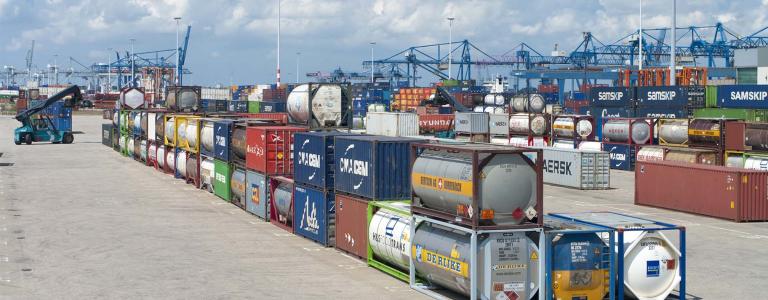Global Chemicals Lobby Proposes WTO Reforms to Tackle Trade Barriers
A group representing global chemicals trade has released a paper outlining its recommendations to modernize the World Trade Organization, tackle trade barriers, and support sustainability.
A group representing more than 98% of all global chemicals trade has released a paper outlining what it calls a “progressive set of recommendations” to modernize the World Trade Organization (WTO). The International Council of Chemical Associations (ICCA) says its consensus paper would reduce obstacles to trade, make it easier for countries to buy and sell essential materials sustainably while encouraging the uptake of standards.
The September 13 position paper urges governments to create a negotiating agenda to support sustainability, with a special focus on climate and circularity. Governments must identify public policies and programs that can spur innovation and investment. They must also develop common principles to ensure that national and regional approaches to sustainability are consistent with the rules-based system. Greater regulatory cooperation is also needed, along with new rules on subsidies and state-owned enterprises.
“The WTO should work together with members to identify and promote an enabling agenda that encourages further investment and streamlines access to third country markets worldwide in support of deployment and implementation of these products and technologies,” the paper says. “Pragmatic, focused approaches are needed.”
The ICCA proposals come at a time when factors beyond WTO policy are already holding back the flow of goods trade. Shipping rates have soared, causing global markets to splinter into regional ones. COVID-19 has curbed production at manufacturing plants and activity at ports. Winter Storm Uri and Hurricane Ida shut down chemical plants in the United States that supplied goods to markets around the world.
“Chemistry drives economic growth, which is a key element of sustainable development,” said Alejandra Acosta, a former regulatory official with Argentina’s Ministry of Environment and Sustainable Development. “The lack of environmental policy or the existence of conflicting regulations between countries that are trade partners can exacerbate environmental threats and make it difficult for safer and innovative products of chemistry to reach the countries that need them the most.”
Catherine Grant Makokera, director of Johannesburg-based Tutwa Consulting Group and trade consultant to the South African Chemical and Allied Industries’ Association, said a rules-based, multilateral trading system remains critical for countries that lack commercial power—particularly those in Africa.
The ICCA plans to discuss the position paper later this month at the WTO Public Forum.
You might also be interested in
Why Trade Matters in the Plastic–Pollution Treaty Negotiations
The global push to end plastic pollution by 2040 highlights the critical intersection of trade and environmental action, with upcoming INC-5 negotiations focusing on reducing plastic production, consumption, and waste within a fair and effective international framework.
The WTO and Fisheries Subsidies: Where are we, exactly?
What are the latest developments in WTO fisheries subsidies negotiations, focusing on marine conservation, community impact, and sustainable fishing practices? Tristan Irschlinger offers a comprehensive overview explaining key aspects of the agreement, ongoing discussions, and what’s at stake for global fishery sustainability.
IISD Trade and Sustainability Review, October 2024
This edition of the IISD Trade and Sustainability Review presents five unique perspectives on the global governance landscape of digital trade.
Adding Fuel to the Fire: How export restrictions can exacerbate climate change’s impacts on global food security
Higher temperatures will likely reduce agricultural yields and production in most countries, raising global food prices and worsening food security. Avoiding export restrictions is crucial.
